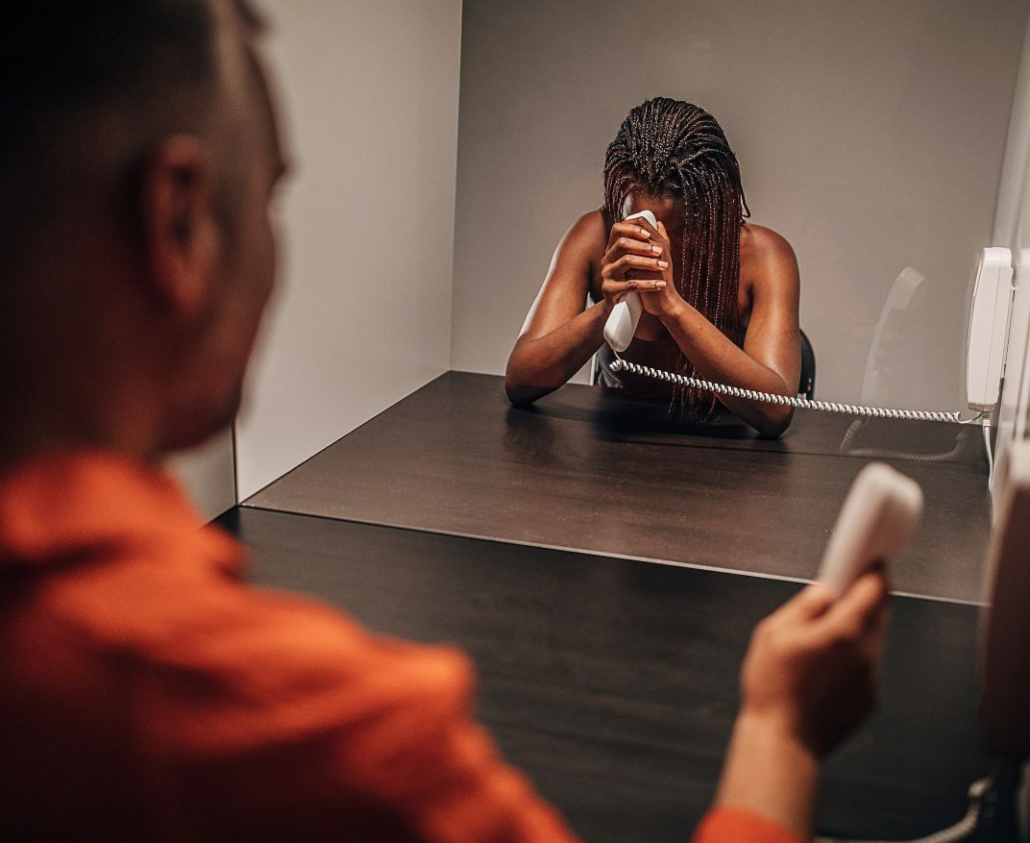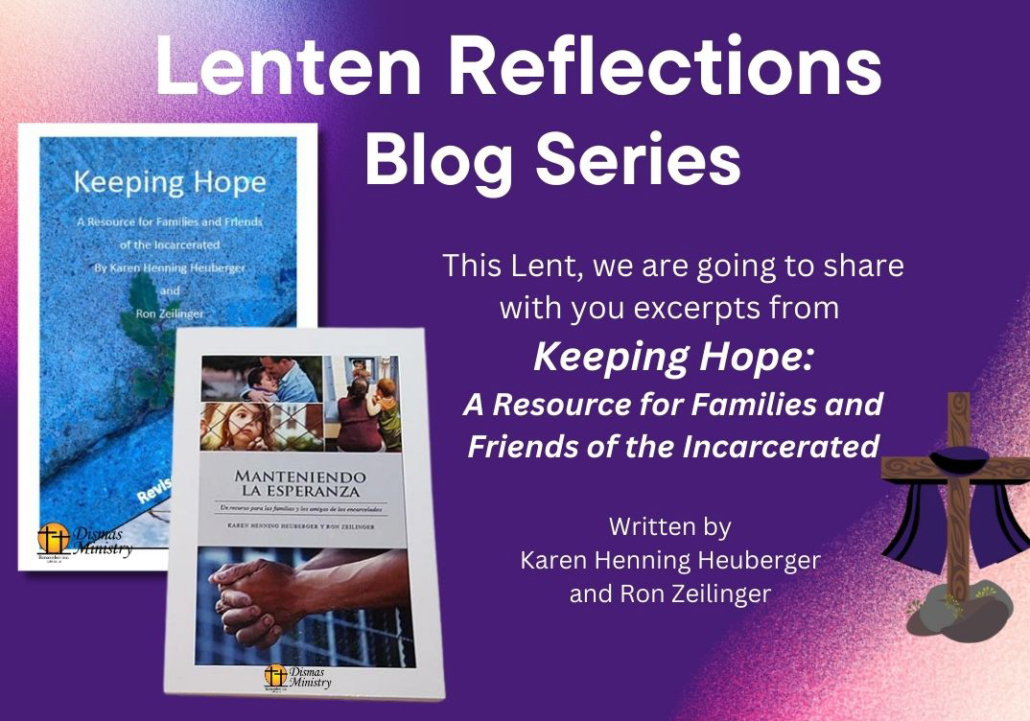This Lent, we are going to share with you excerpts from Keeping Hope: A Resource for Families and Friends of the Incarcerated
Written by Karen Henning Heuberger and Ron Zeilinger
“Visiting Your Loved One”
 You may be able to visit your loved one each week, or at least 2-3 times a month. Or you may visit only a few times a year due to travel and time constraints. For some of you, the distance may prevent you from visiting at all. When you do visit, if you are able, the main thing is to make the most of it and keep the conversation in a positive vein. You may have to find ways to keep your emotions in check, especially if you are angry with your loved one. In the early visits, you may want to know the truth of what happened when the crime was committed. Why did he or she do it? The truth is, sometimes your loved one may not even know. He or she may also play the “blame game” and may not be ready to take full responsibility. Or your loved one may be careful with what is shared so as not to hurt you. Don’t push your loved one to share. You may not know the emotional state your loved one will be in before you visit, so you need to be prepared for uncertainty during the visit. Over time, visiting usually gets easier. Keep your loved one up-to-date on family events, find ways to bring humor and to laugh, and be sure to express your love in some way. You can grow closer to your loved one during these visits. You can become your loved one’s true support person even if you have not been in the past.
You may be able to visit your loved one each week, or at least 2-3 times a month. Or you may visit only a few times a year due to travel and time constraints. For some of you, the distance may prevent you from visiting at all. When you do visit, if you are able, the main thing is to make the most of it and keep the conversation in a positive vein. You may have to find ways to keep your emotions in check, especially if you are angry with your loved one. In the early visits, you may want to know the truth of what happened when the crime was committed. Why did he or she do it? The truth is, sometimes your loved one may not even know. He or she may also play the “blame game” and may not be ready to take full responsibility. Or your loved one may be careful with what is shared so as not to hurt you. Don’t push your loved one to share. You may not know the emotional state your loved one will be in before you visit, so you need to be prepared for uncertainty during the visit. Over time, visiting usually gets easier. Keep your loved one up-to-date on family events, find ways to bring humor and to laugh, and be sure to express your love in some way. You can grow closer to your loved one during these visits. You can become your loved one’s true support person even if you have not been in the past.
For many people who have had a loved one incarcerated, they find getting through security to be a challenge, especially because it uses up precious visiting time. For others, not being able to touch their loved one, or only having a quick hug and kiss, is the toughest aspect. For still others, it is seeing their loved one struggling and experiencing the reality of the situation. But for the vast majority, the hardest part is leaving – saying good-bye, knowing you have the freedom to go and choose what you will do next, while your loved one must stay. You know your loved one will be there as long as it takes and is not going anywhere. This, most say, is the most difficult part of visiting.
Special Considerations
Before making contact, you will want to make sure your loved one isn’t under any sanctions, such as mail or visiting restrictions. If he or she is, facilities may outline the limits of such restrictions on their website. Additionally, the website may list organizations that provide transportation to the facilities for visitors. Churches and other organizations may provide fee-based or free transportation. One such program is California’s statewide “Get on the Bus”, an annual event providing transportation for children and their caregivers to visit their incarcerated loved ones. Also provided in this event are food and other special items for the children. Another example is Diocese of Los Angeles-based “Journeys of Hope”. It is a program that helps keep families connected through visitation.
As a recent Minnesota Department of Corrections study affirms, visiting your loved one can have a substantial, positive impact. The study demonstrated that, “Any visit reduced the risk of recidivism by 13 percent for felony reconvictions and 25 percent for technical violation revocations…The results also suggest that the more sources of social support an offender has, the lower the risk of recidivism.” (The Effects of Prison Visitation on Offender Recidivism, Minnesota Department of Corrections, November 2011) So the challenges experienced in the visitation process are well worth it for most family members. Your support can make a significant difference in your loved one’s capacity for rehabilitation and reintegration into the community after incarceration.
From Those Who Know…
I thought the letters we received would say they were really sorry, and we didn’t hear that for a long time.
My brother writes and writes.
A birthday card was rejected because there was a ribbon on it.
It was a little nerve racking because she always asks to come stay with my family, and my husband and I aren’t comfortable with that.
I was embarrassed to get a letter at first stamped with “Mailed from a Correctional Facility”.
Phone calls are an excellent way for our son to communicate to us what he is doing and what the conditions are. We feel more comfortable!
I was afraid I would say something I wasn’t suppose to since calls are recorded.
When you’re visiting, they check your clothing, shoes, etc. just as if you’re a criminal too.
You take everything out of your pockets. I know it’s for security, but you feel violated for something you didn’t do.

READ MORE FROM KEEPING HOPE BY PURCHASING YOUR COPY ON OUR STORE PAGE.




